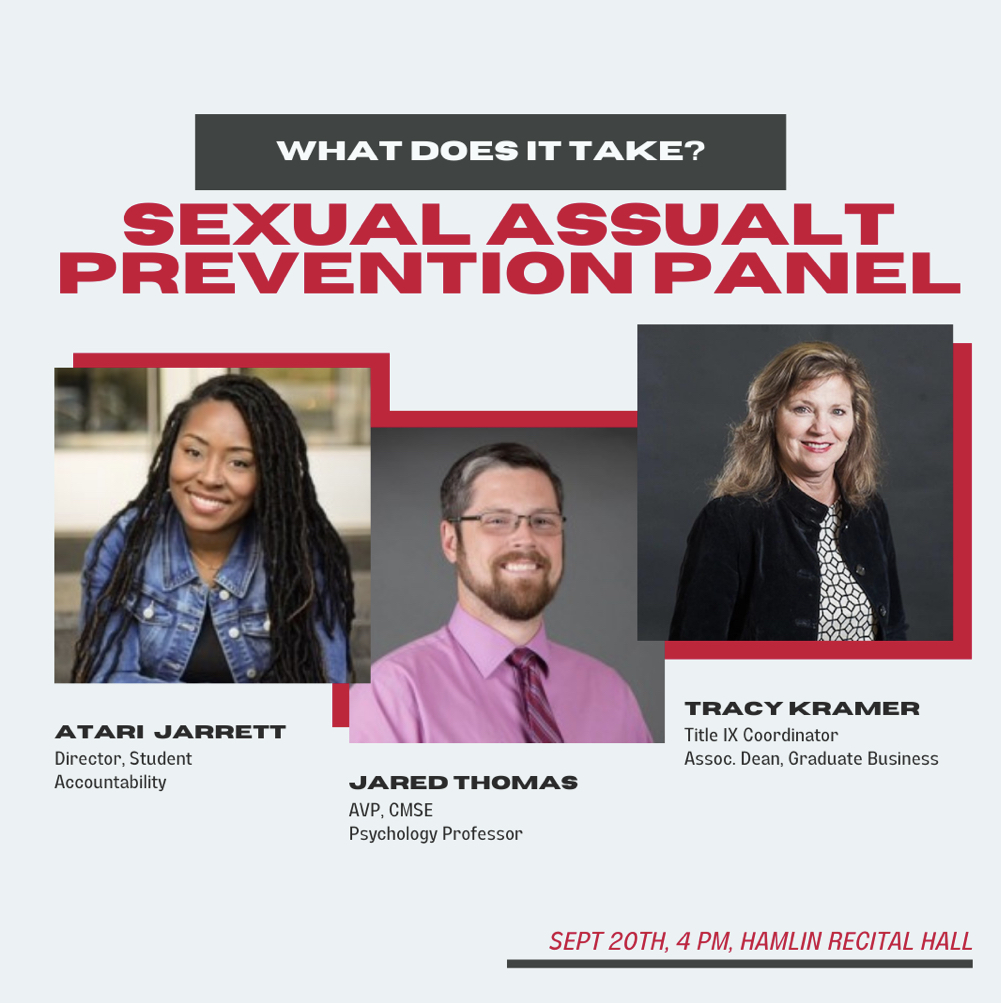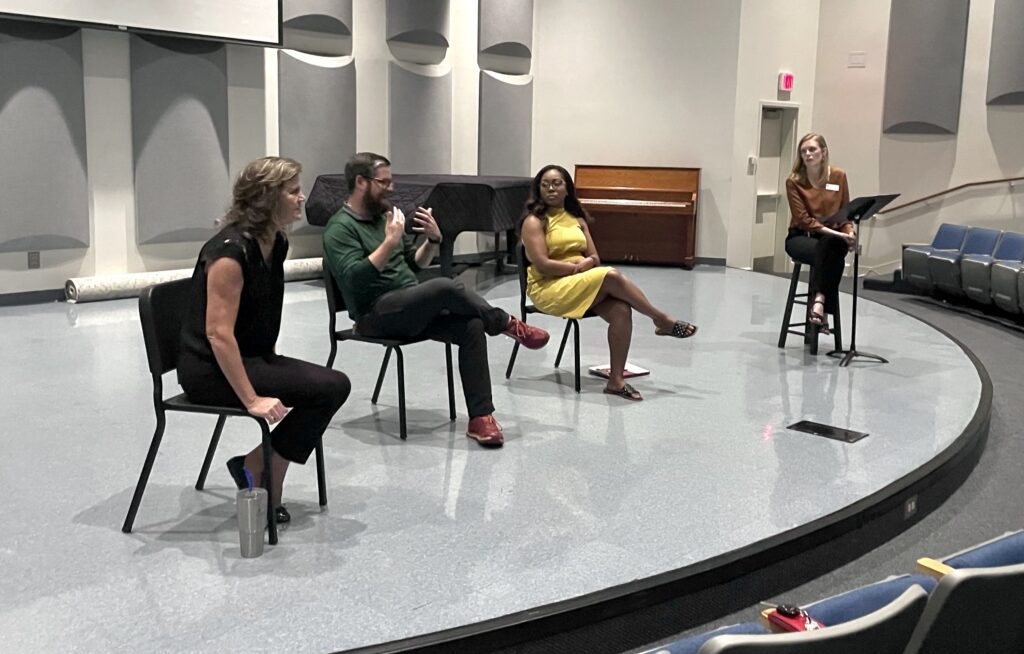
NGU Faculty Host Sexual Assault Prevention Panel
Abigail Dickerson, Visual Arts Editor
On Tuesday Sept. 20th, three North Greenville University faculty hosted a panel discussion on sexual assault prevention and Title IX awareness for students in Hamlin Recital Hall.

Panelists informed students of the dangers of sexual assault on a college campus. As a freshman, a late-night one-on-one Walmart run may seem harmless, but you can never know everyone’s intentions.
You may have a family or friend who has experienced sexual assault without your knowledge. When asked what signs to look for in someone who has been assaulted Tracy Kramer said, “Past hurts can show in self-loathing, anxiety, depression and other things.”
Sexual assault is defined as any nonconsensual sexual act, according to the United States Department of Justice. Also, college-age individuals are more likely to experience sexual assault than any other age group with someone they already know. Assault does not just include rape, it also covers things like nonconsensual touching, kissing, hugging, or inappropriate acts.
On a college campus, there are a few things that students can do to prevent sexual assault. These things include not traveling alone on or off campus, keeping dorm doors locked as well as keeping your car locked. These few safety precautions have been advised for all young adults living on campus and commuting.
The panelists included Jared Thomas, Assistant Vice President of Student Engagement, Atari Jarrett, Director of Student Conduct and Tracy Kramer, Associate Dean of Graduate Business and Title IX Coordinator.
Jarrett started off the discussion by saying that we as a university believe in arming students with facts. She said that it is important for students to know that “no means no”, and they should all be aware.
“We care about the safety of our students and educating them on realities,” said Thomas. He said the community is important here and little happens in secret. Unnoticed assaults are harder to come by when the community is as tight as it is here. When assault does happen, it often happens alongside other violations of the handbook, so be aware.
One thing that each panelist expressed the importance of was consent. If asked for consent and the question is ignored, that is not consent. Saying no is also not a form of consent. Consent must be audible in all circumstances. It is a continual agreement that can be removed at any time, said Kramer.
Previously having consented to something is not valid consent for the present. Kramer pointed out that consent cannot legally be given if the use of drugs or alcohol has been used. Over half of the time sexual assault cases are brought up in the college age range alcohol has been involved in one or both parties, said Thomas.
The panelists discussed that if an act of sexual assault has happened, the best thing to do is to get out and then report it. Sexual Assault nurses are available in emergency rooms at all times if needed by any individual. You can even remain anonymous if you choose, said Jarrett.
When asked what the most important thing to know after an assault was Kramer said, “We need to make sure we tell people these things happen and that there is a way out.” She then shared four steps to follow after a sexual assault has occurred.
The first is to get out of the situation as quickly and as safely as possible. Then, tell someone about what happened, this could include Campus Security, Tracy Kramer, or even the police. Her next step was to put yourself in a public space where you are near other individuals.
One of the most important steps is the fourth. Keep evidence such as clothes and you may not want to wash your hands either for evidence purposes said Kramer. Proof can be hard, that’s why evidence can help, said Jarrett.
Reporting an assault on campus is filed through a process called, “Title IX.” The process was originally created to deal with gender discrimination as well as sexual misconduct. It covers events that occur on campus, but only between students as well as staff that is a part of the university. If you go to faculty or staff with information about an assault, they are required to report it
A Title IX case will be resolved in one of two ways. An informal resolution, or a formal one. An informal resolution means that no investigation would take place and matters would be dealt with in other ways. Formal processes involve a trained investigator who deals with the complainant and the respondent.
There are equal opportunities for both parties involved. They can each choose witnesses, and review the case after it has been shown to the other party. The formal process cannot be done until ten days after the event occurred. The final report is then given to a panel to discuss on the record.
While it is a formal process of investigation, the Title IX panel is not a court of law. The panel will make their decision based on the facts that imply an event was more than likely. After this, the decision will be shared with those involved.
Often people are scared to respond, but they must know that reporting something is not going to make it bigger, said Jarrett. If someone you know is hesitant to report an assault, report it for them. “Friends don’t let friends stay in that situation”, said Kramer. Don’t let fear or embarrassment keep you from reporting. Reporting can also expose repeat offenders.
It isn’t a process that takes months and months, she said. While an event may be filed as a Title IX, it may not always be needed because there are other measures of safety that can be taken campus-wide.
When asked each of their biggest pieces of advice, Thomas responded by saying, “We are called to respond Biblically. We will show them love and support without judgement of the situation. Students’ safety matters first.”
North Greenville University faculty and staff care about the safety and well-being of all students. If you or someone you know on campus has experienced sexual assault while in attendance at the university, please contact Campus Security or Tracy Kramer.
